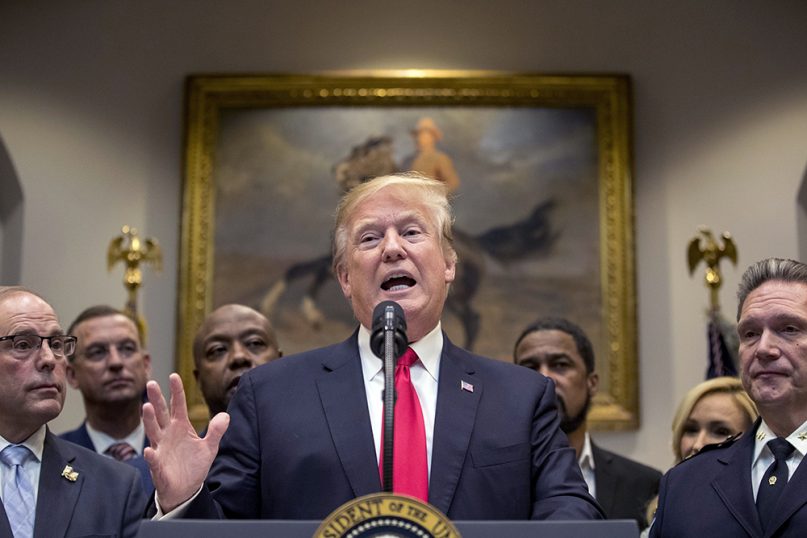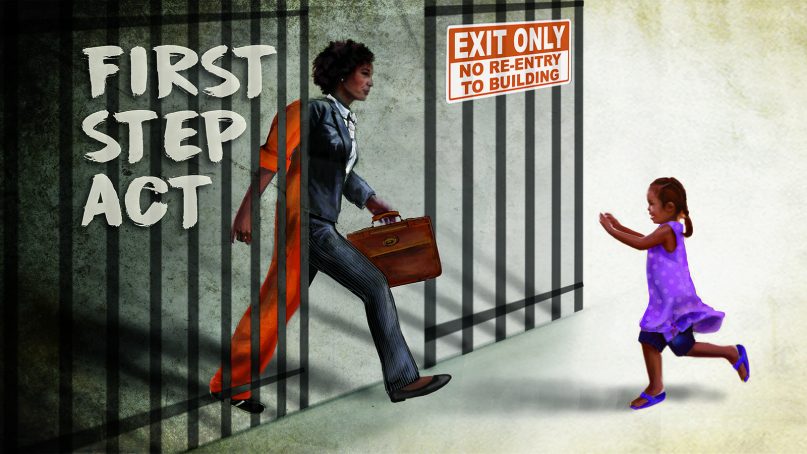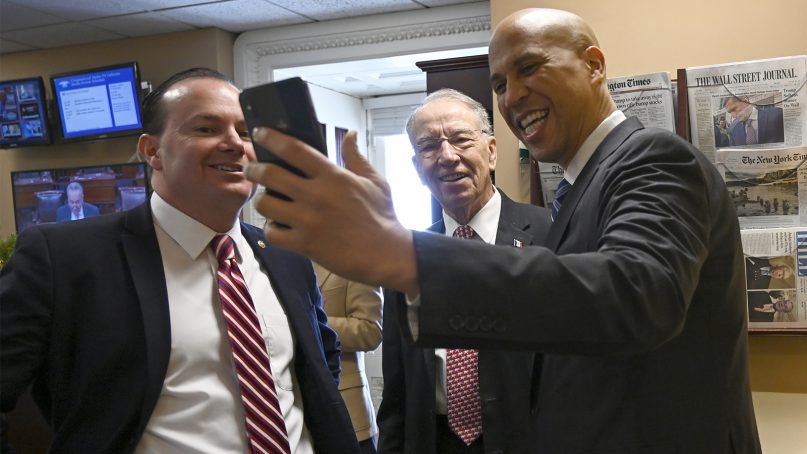WASHINGTON (RNS) — To great acclaim from a diverse array of religious groups, civil society organizations and political leaders, the U.S. Senate voted 87-12 to advance a criminal reform bill Tuesday night (Dec. 18).
The House of Representatives has already passed its version of the First Step Act (the bill’s full title is Formerly Incarcerated Reenter Society Transformed Safely Transitioning Every Person Act). Once the two are reconciled, the measure will head to the Oval Office, where President Trump is eager to sign it into law.
This high-profile moment of bipartisan consensus on Capitol Hill comes with a warning, however, for each of the faith constituencies that helped to pass it. It also gives us a clue to how faith groups can work with the administration and each other.
News accounts have called this reform a “win” for conservative evangelicals. Against the tide of “tough-on-crime” politicians, evangelical elites have joined with other prison-reform advocates to help craft fairer and more compassionate policies on prisons and sentencing.
Eventually, rank-and-file evangelicals will support these reforms too. A June 2017 survey showed that evangelicals and other practicing Christians were likelier than the general public to agree that the goal of the criminal justice system should be to return offenders to society.
But that’s not the whole story. Trump-loving and Trump-skeptical evangelicals were joined by a broad coalition of religious groups, Protestant leaders as well as the U.S. Conference of Catholic Bishops.

President Trump speaks in favor of H.R. 5682, known as the First Step Act, in the Roosevelt Room of the White House in Washington on Nov. 14, 2018. The measure would reform America’s prison system. (AP Photo/Andrew Harnik)
If evangelicals are tempted to bask in the glory of another win under Trump, they risk overselling the impact and significance of the bill. Professional advocates such as the evangelical Prison Fellowship have done a good job of reminding conservatives that this legislation is, as its name implies, only a first step.
To make continued progress in the next Congress, these Republican-aligned groups will need to be just as willing to work with liberal Democrats as they have been to work with their own tribe.
RELATED: First Step Act recognizes that prisoners, too, are made in God’s image
It is important to understand why some faith groups on the left opposed the bill. Progressive Christians have a broader prophetic vision that demands that prison reform begin to right the wrongs created by a racist society. The Rev. Traci Blackmon, a prominent Congregationalist minister from Ferguson, Mo., told The Atlantic that First Step “is coming without any analysis, any confession, any acknowledgment of how we got where we are right now.”
The National Council of Churches, which in recent years has focused intently on sentencing reform, finds the legislation “sorely lacking” for providing “token sentencing reform measures” while doing “little to address the gigantic problems associated with the mass incarceration crisis.”
These progressive holdouts, whom I do trust have the more expansive and biblical view of justice in mind, preferred to take nothing rather than something.
This is a mistake. I hardly blame them for doubting that the Trump administration, or conservative evangelicals for that matter, will soon share their zeal for ending the prison-industrial complex and the carceral state.

Illustration courtesy of FirstStepAct.org
Progressives need to recognize that the president is an undeniable political force, one that towers over this reform effort and any other process they envision. They also need to recognize that his enthusiasm for this reform is a welcome signal that he is open to ideas that do not come steeped in white-grievance politics.
Trump is a complex and extremely problematic president, but he does have an instinct for compassion. If faith advocates can appeal to it, cultivate it and work strategically without concern about who gets the credit, maybe we will see more compassionate policies emerge before this administration is over.
This is no small ask, considering the breadth of distaste for the man himself. Advocates across the spectrum had to think twice about aligning with Trump to make this happen. But it is refreshing, especially in the midst of rampant congressional-executive dysfunction, that the process worked: Advocates brought their values to bear, crafted a better policy, built a bipartisan consensus and achieved a meaningful reform.
The administration’s cruelty is a constant source of disappointment, national shame and alarm. But in this holiday season, Trump is poised to sign a bill that will make it possible for more Americans to spend future holidays at home with their families. It also gives hope for a future for our polity.





